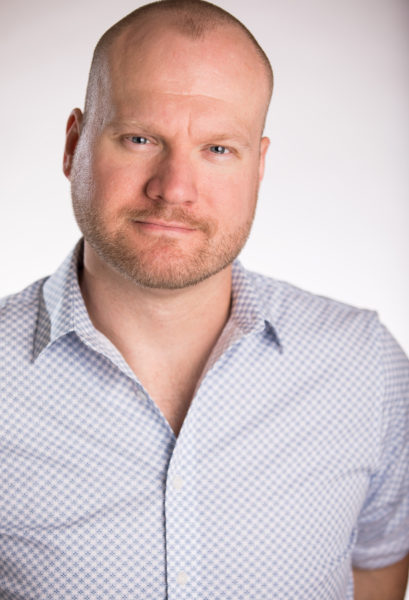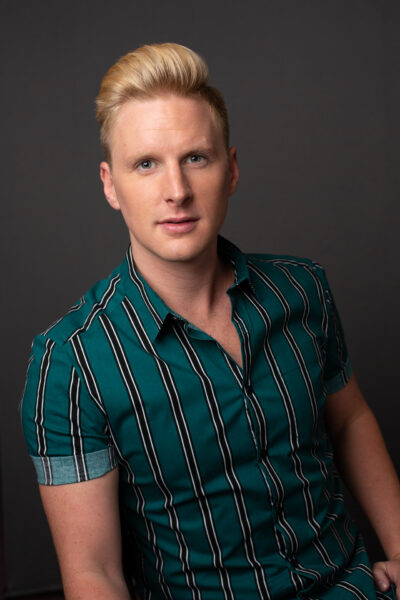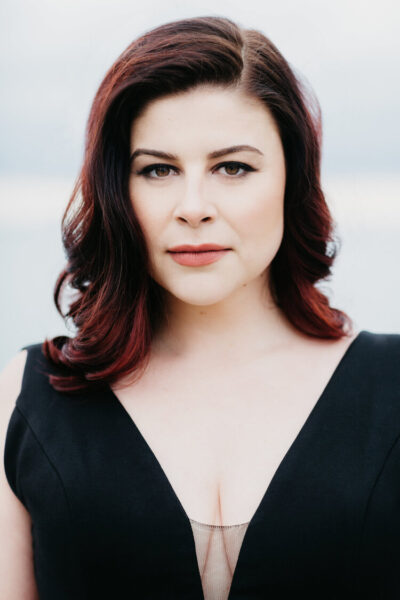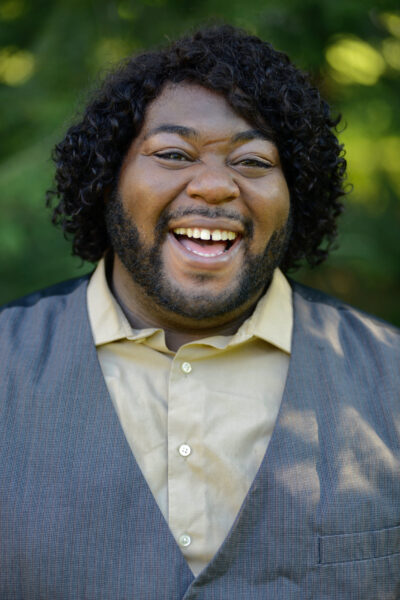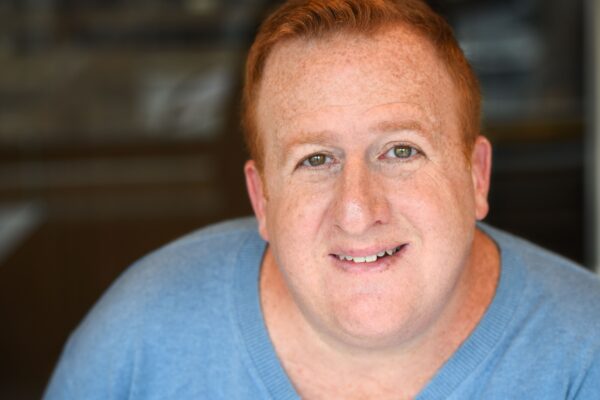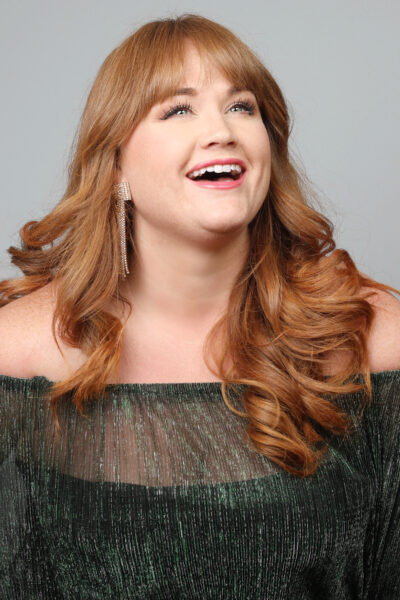At 19, Nathan Stark was showing signs of promise, notably in that big bass voice he was letting others hear for the first time. The 6-foot-4 farm boy had auditioned for a singing role in Brigadoon, a performance that alerted faculty at Modesto Junior College that they had a future star on their hands, whether Stark even appreciated his own talent or not.
But for weeks, the only signs that mattered were the numbers blinking over his hospital bed. Stark would not be playing Angus MacGuffie in Brigadoon. A car crash had broken his jaw in three places, his hips and all of his ribs, leaving him in a coma and on life support.
After two weeks with the patient unresponsive, a doctor passed a clipboard to Stark’s father, a truck driver who like all the other Starks lived within a mile and a half of each other in tiny Hughson, Calif. The attached forms contained dozens of questions the physician summarized in one: “What do you want to do?”
“My mother tells the story, that my father picked up that clipboard and threw it across the room and said he was not turning off the life support,” Stark says. “Fortunately, they kept that going.”
The story evokes a laugh, a richly resonant sound that rolls out easily and often.
In hindsight, that period between the audition and the crash could seem almost magical. Stark had taken a few voice lessons in college, just for fun. He likely would not have joined the cast of Brigadoonhad not an old high school buddy offered him $20 to try out.
“He said, ‘Nate, the cast needs men. I’ve heard you sing in the car, I know you can carry a tune.’”
The music director, who had heard him sing Some Enchanted Evening, persuaded Stark to change his major to music. He thought Stark ought to consider a career in opera.
“I just assumed opera was for big fat Italian guys,” Stark says. “I was so ignorant.”
Then came the crash.
“Prior to that experience I just treated college as sort of, ‘Whatever,’” he says. “After something like that happens, you get into a different sort of mindset: My god, I’ve got to do something with my life because I almost lost it! So you’ve got to figure out what you want to do and do it with everything you have.”
Stark came out of the coma two weeks after his father broke the clipboard. Full recovery would take another 18 months and entail multiple reconstructive surgeries, from which he emerged miraculously restored.
Just one flaw remained, and it was barely noticeable: The crash had severed the tip of his tongue, which killed his ability to taste sweets. Change was literally shaping him now, giving him urgency. Soon that change would be packing the trunk of his car, headed to California State University, Long Beach, which had an opera institute.
An early voice teacher, Dr. Lewis Woodward, told him to find what makes him unique. That seemed different, and preferable to trying to sound like somebody else. At Long Beach, Shigemi Matsumoto brought her own performing career with the likes of Luciano Pavarotti, Placido Domingo and Beverly Sills to bear on Stark.
Stark was at Music Academy of the West when he met the teacher who would influence him most, legendary mezzo-soprano Marilyn Horne. He recalls standing in the back row, “trying to hide because I’m too scared and nervous.”
Horne invited him be in her master class. Then asked why he was stammering.
“I said, ‘I’m sorry, Miss Horne, but you’re Marilyn Horne,’” Stark recalled. “And she said, ‘Oh, sweetheart, I’m just me!’”
So began a long relationship through which Stark learned the technique from the finest coloratura singer in the business. After writing his master’s thesis on Horne, Stark did further post-graduate work at the Cincinnati College-Conservatory of Music. Each move took him further from his roots in Hughson, where he once thought he would be spending most of his days.
Moving from a small farm town to a beach city to the Midwest was like traveling to distant worlds, he says. A sense of alienation still holds true 17 years later, now based in Philadelphia and traveling all over the world.
“I don’t think that’ll ever change,” he says. “I think I’ll always be a small-town guy at heart.”
Is there a downside to his life as an opera singer? Maybe, but it comes with the territory.
“I would say that one thing that has been the most difficult about having a career that is busy and active and wonderful is the fact that it has had some repercussions on my private life and on my relationships,” Stark says. “I’ve been blessed to have been in several relationships, but they have all ended because I haven’t been around. Because I’ve been busy. I’m hoping that one day I can find the happy balance. But I’m not ready at this point to just give up everything that I’ve worked hard for in a career for a relationship. I was an only child growing up, I’m used to being alone, I prefer being alone a lot of the time. But it’s going to take someone very patient to be with somebody like me.”
There’s a reason for everything, even if life doesn’t always spell it out.
“I am a Christian man,” Stark says. “I do believe in a higher power, and I do believe that there are things that happen in our lives that are sort of presented to us to give us direction. If there is a positive in that terrible accident that happened 20 years ago or so, it was that it drove me in a direction. It was like putting a jet-pack on my back toward really dedicating myself to music and to art and making the best I could out of it. So yeah, I do believe it did help me, in giving me a deeper appreciation for putting yourself out there, throwing yourself out there. Trying something crazy like an opera career.”
Now in his mid-forties, Stark says he is feeling the arthritis aches a bit more, taking a few extra Advil. But for now, he’s all in on his art and its demands. Ten or 20 years from now? When the time comes, he believes he will know.
“Marilyn Horne said it perfectly,” Stark says. “She said, ‘The business chooses you. When it wants you, it will let you know it wants you. It will also let you know when it doesn’t.’ At the time it really didn’t mean anything to me. Now, being in this business the last 17 years or so, I know exactly what she means. The business lets you know how you are going to fit into this whole fabric of opera. And sometimes you like it, sometimes you don’t. But the business lets you know. I’ve just never forgotten that. And the business hasn’t told me that it doesn’t want me yet. It keeps validating that I need to be here.”
